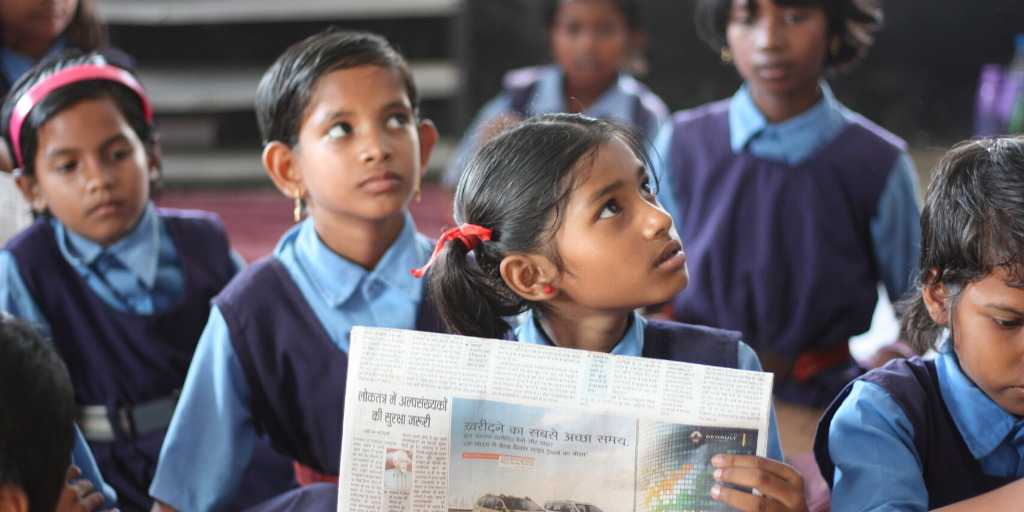

In a developing country like ours, the role of NGOs is critical for socio-economic development. In India, NGOs are actively involved in numerous developmental activities such as health, education, agro-industry, and microfinance. There are many such social/developmental initiatives by the government where NGOs are the main implementers apart from the government machinery. Therefore, we can say, NGOs are a catalyst for the nation’s inclusive development.
What is NGO
NGO is a non-governmental organization that is independent of the direct control of the government. Most of the NGOs either work for a humanitarian reason or a social cause. NGOs can be voluntary associations, self-help groups, not-for-profit organizations, charitable or cooperative associations and they run on donations and voluntary contributions from people in the society.
The increasing number of NGOs in India demonstrates their importance in developmental work. According to the Indian Express, dated 1st August 2015, there were 31 Lakhs registered NGOs in India, the number was almost more than double the number of schools that year. This gives a slight idea of to what extent the NGOs have been contributing to the nation’s development. It is true that many NGOs are just paper-work and not active, however, the majority of them are leading grass-root development in the society with a positive impact.
Role of NGOs in socio-economic development
When there is a talk of participative, cooperative, and collaborative efforts all over the world for sustainable inclusive development as envisaged in Sustainable Development Goals by United Nations (UN), India is no exception. In contemporary Indian society, people have more complex problems and among them, the poor and destitute are more vulnerable sections. The government is unable to handle these all issues single-handedly and therefore the NGOs have been expected to share a great pie of the huge task of development.
NGOs in India are working on various fronts with a specific humanitarian cause such as rural development, women’s rights, children’s education, literacy, environmental issues, water and sanitation, financial empowerment, and other social issues. NGOs are contributing to human development in a greater way. Let’s see some of the examples and impact stories.
1. CRY – Child Rights and You
Started by 1979 by Rippan Kapur, CRY is an NGO that works in the field of child rights. The vision statement of CRY reads “A happy, healthy and creative child whose rights are protected and honored in a society that is built on respect for dignity, justice, and equity for all”. The issues that CRY undertakes range from child malnutrition, child labor, girl child education, female foeticide, etc.
2. Goonj
With constructive visible work in the area of poverty alleviation, Goonj is enhancing the dignity of the poor since 1999. A Delhi based not-for-profit organization established by Anshu Gupta has even received Magsaysay award for “transforming the culture of giving in India and for highlighting material as a sustainable development resource for the poor”.
3. Akshay Patra
With a distinction of the world’s largest Mid-Day Meal Programme that serves food to over 1.8 million children every school day, Akshay Patra so far has served a whopping 3.2 billion meals. Quite impressive! With inspiration from Swami Prabhupada who decided “No child in India shall be deprived of education because of hunger”, Akshay Patra started its gigantic mid-day meal prgoramme in June 2000.
4. Pratham
Started in 1995 to improve education quality in India, Pratham is an “innovative learning organization” that works on “high-quality, low-cost, and replicable interventions to address gaps in the education system”. There is a report on education called the Annual Status of Education Report (ASER) published by Pratham. ASER is now considered by the state central governments in India for forming educational policies.
5. Smile
Smile Foundation is a not-for-profit organization that was established in 2002 and since then It is working as a “catalyst in bringing sustainable change in the lives of underprivileged children, youth and women, with a life-cycle approach of development”. Smile Foundation benefits more than 7.5 lakhs children and their families in the area of education, livelihood, healthcare, and woman empowerment.
6. Foresight
Established in 2014 and based out of Kolhapur, Maharashtra, Foresight Foundation is working for youth empowerment through education. With an ambitious mission of creating libraries in the form of an educational hub, Foresight is slowly going ahead.
There are many such NGOs which are playing a crucial role in the socio-economic development of the country. It is true that there are a few cases where some NGOs receiving foreign aid have impeded the government’s initiatives. However, on a large scale, NGOs are undoubtedly furthering human development on many fronts. With the increasing government financial aid and donations, NGOs are truly upholding democratic values and strengthening the development process in the right direction.
